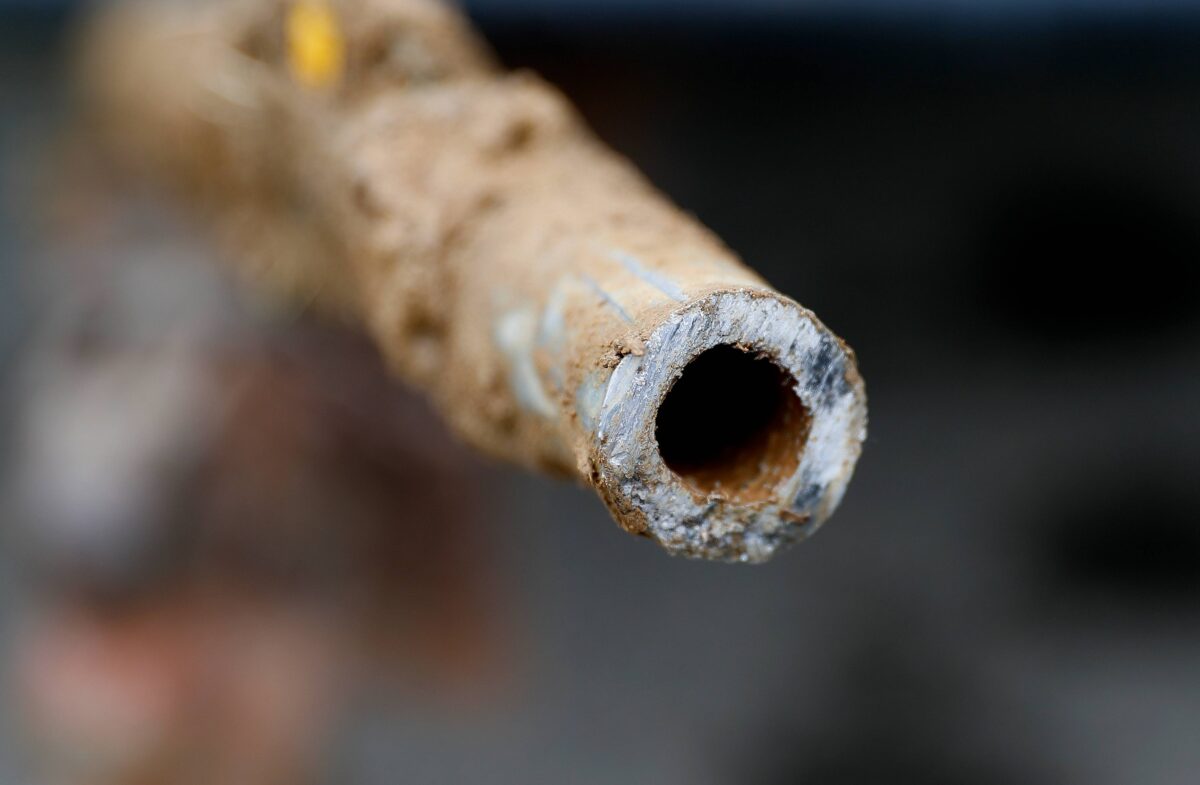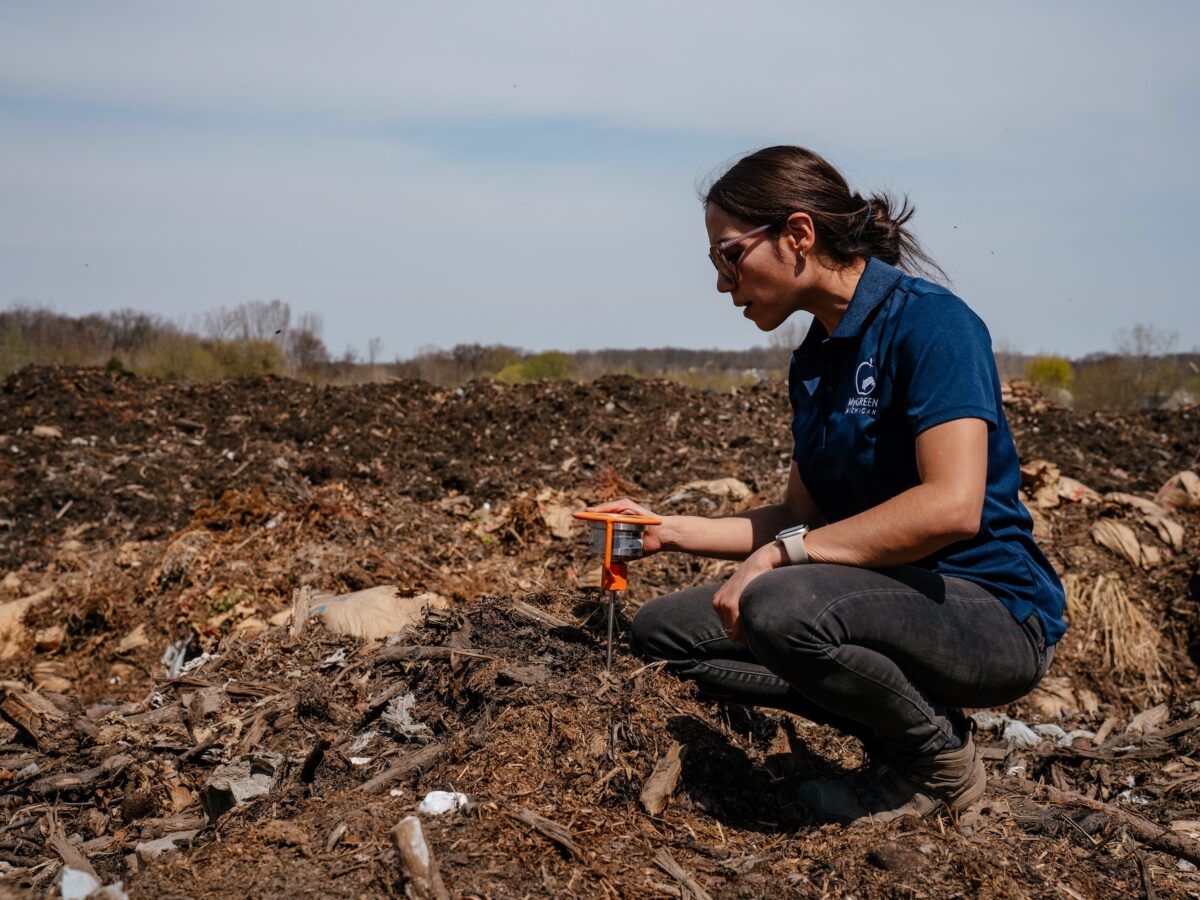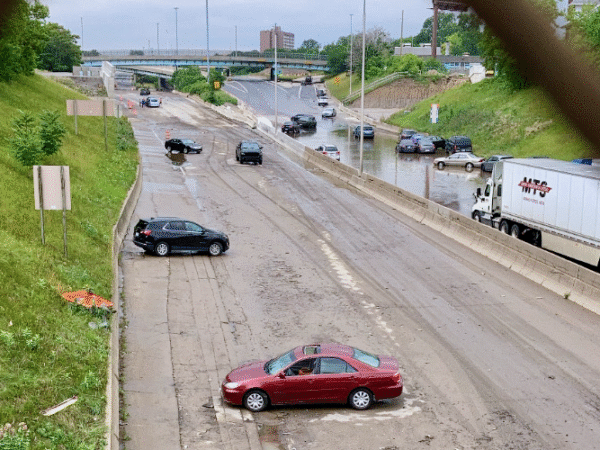Overview:
-The Filter Safety Net Program offers certified filters and replacements to eligible households, but its limited scope and request-based access leave many vulnerable.
- Advocates call for direct, free distribution of filters to all households with suspected lead service lines, paired with comprehensive education and community engagement.
-This approach aims to rebuild trust in public water systems and ensure equitable access to safe water for all Michiganders.
In order for Michigan to Get Ahead of Lead and protect public health during the state’s lead pipe replacement efforts, water systems must increase access and trust in a critical solution— tap water filters.
Across Southeast Michigan, some communities are already eligible for state programs removing lead from drinking water, such as the Filter Safety Net Program, which provides filters certified to remove lead, and cartridge replacements to households with children and/or pregnant persons enrolled in Medicaid.
These programs, however, are limited and leave many families on their own to identify and resource safe water. For the limited eligible population, the program is by request only.
That means the burden falls on individuals to find out about the program, determine if they qualify, and then submit a “Lead Services” application. These steps can prevent many —especially those with less technology know-how or little existing trust in their water utility — from accessing safe drinking water.
Expansions to the program must be made to ensure wider access and successful implementation, and by consequence, protected public health.
Filters should be directly and freely distributed to all households with a known or suspected lead service line — no request needed. Distribution should be accompanied by thorough and culturally relevant educational materials on filter use and maintenance.
Direct community engagement with trusted partners is crucial, and should include diverse communications tactics such as phone banking, town halls or community meetings, and door-to-door outreach. Cities like Denver, Colorado, have shown how successful these strategies can be, with an 80% filter adoption rate less than one year into their program.
The City of Grand Rapids partnered with the Healthy Homes Coalition of West Michigan to administer the Third Ward Lead Reduction Initiative. All Third Ward residents are eligible to receive Brita filter pitchers, replacement filters, supplies to remove and clean aerators and, importantly, information about lead.
“The education in the kits is an opportunity to empower residents and inform them of other potential hazards they may not know about, as well as available local resources,” explains Kat Lykins, the Third Ward community educator.
“By continuing to show up in prominent third spaces and resource centers, we hope to restore some trust in governing agencies.”
MORE VOICES COLUMNS
Voices: Michigan has a big food waste challenge. Here’s a roadmap for change
Food waste is an environmental and economic failure. Here are some ideas for how Michigan can do better.
VOICES: With climate change at our doorstep, Michigan can’t afford to lose environmental protections
As Michigan faces increasingly frequent extreme weather, emergency response from state and federal agencies is more important than ever, says the Sierra Club’s Elayne Coleman.
VOICES: Pope Francis’ climate legacy: Can Pope Leo XIV carry the torch?
As Pope Leo XIV steps into his role, young people are eager to see if he will continue Pope Francis’ legacy on climate action, writes the Rev. Gary R. Wright, parish priest at Saints Peter and Paul Jesuit Church in Detroit
When threatened by lead, households often turn to plastic bottled water. But plastic bottled water is hundreds to thousands of times more expensive for households than tap water. It’s also a health threat: the average liter of bottled water contains at least 240,000 plastic particles and can leach BPA, PFAS, and other chemicals that are especially dangerous for children.
Moreover, two-thirds of plastic bottled water is just packaged tap water bought from local water systems. Companies often don’t add any more treatment — just more chemicals. And there is far less regulation of the water inside plastic bottles than there is of tap water.
“Building relationships with residents is just the beginning of amending historical disinvestment in these communities,” Lykins says.
“In the future, I’d like to see continued efforts to remove barriers and more filter programs for folks who have lead or galvanized plumbing in the home without the funds to replace them with safer materials. Everyone should have access to clean and healthy drinking water.”
Repairing trust in public water systems after contamination occurs is difficult. Even though filters, not bottled water, are the clear solution for safe, affordable, toxic-free water, households may be understandably wary of putting their trust in systems that have let them down before.
Proactive, direct filter distribution and communication is a critical step towards rebuilding community trust and establishing a future where all Michiganders have equitable, safe water access.
Planet Detroit’s Voices column includes opinion pieces from our community of partners and readers. These pieces express the voices of the authors and not necessarily those of the publication.





